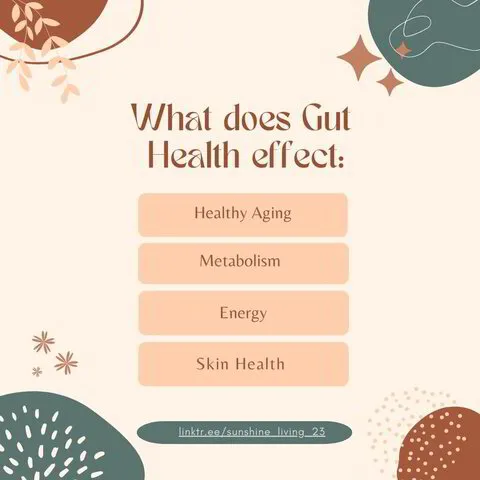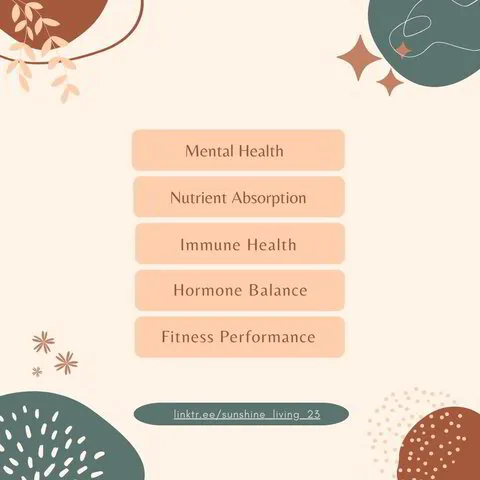In the intricate symphony of our body's well-being, gut health plays a pivotal role. Often referred to as the "second brain," the gut houses trillions of microorganisms that influence digestion, immunity, mood, and more. Maintaining a balanced and healthy gut is essential for overall wellness. In this comprehensive guide, we delve into the world of gut health, exploring its significance, identifying signs of imbalance, offering solutions, and unveiling the transformative benefits of a harmonious gut.
Understanding Gut Health:
Gut health refers to the balance and diversity of microorganisms in the digestive tract, collectively known as the gut microbiota. A thriving gut microbiota fosters efficient digestion, robust immunity, and even influences mental health. On the flip side, an unhealthy gut can lead to a range of discomforts and health issues.
Recognizing Unhealthy Gut Symptoms:
- A variety of symptoms can signal an imbalanced gut:
- Digestive Disruptions: Bloating, gas, diarrhea, or constipation may indicate gut issues.
- Food Intolerances: Difficulty digesting certain foods, often leading to discomfort.
- Low Energy Levels: An imbalanced gut can hinder nutrient absorption, resulting in fatigue.
- Mood Swings: The gut-brain connection means an unhealthy gut might contribute to mood disorders.
- Skin Issues: Conditions like acne and eczema can be linked to gut imbalances.
Solutions for Better Gut Health:
- Fortunately, there are steps you can take to restore and maintain gut health:
- Dietary Adjustments: Embrace whole foods rich in fiber, prebiotics, and probiotics.
- Stress Management: Chronic stress can harm the gut; establish relaxation habits.
- Adequate Sleep: Prioritize quality sleep to allow the gut to heal and restore.
- Stay Hydrated: Water is essential for digestion and nutrient absorption.
- Regular Exercise: Physical activity supports a diverse gut microbiota.
- Limit Antibiotics: Use antibiotics judiciously, as they can disrupt gut bacteria.
- Avoid Overuse of Sterile Products: Excessive use of antibacterial products can harm beneficial bacteria.
Foods That Fight Gut Inflammation -
Certain foods can aid in reducing gut inflammation:
- Fiber-Rich Foods: Whole grains, fruits, and vegetables nourish beneficial gut bacteria.
- Probiotic-Rich Foods: Yogurt, kefir, sauerkraut, and kimchi introduce beneficial bacteria.
- Prebiotic-Rich Foods: Garlic, onions, asparagus, and bananas fuel the growth of beneficial bacteria.
- Fatty Fish: Omega-3 fatty acids found in salmon and mackerel can reduce inflammation.
- Turmeric: Its active compound, curcumin, has anti-inflammatory properties.
Attaining Good Gut Health:
- Balanced Diet: Prioritize plant-based foods, lean proteins, and healthy fats.
- Probiotic Supplements: Do your research before trying supplements.
- Mindful Eating: Chew thoroughly, eat slowly, and savor each bite.
- Hygiene: Maintain good hygiene, but avoid excessive use of antibacterial products.
Benefits of Good Gut Health:
- Improved Digestion: Say goodbye to bloating and irregular bowel movements.
- Enhanced Immunity: A robust gut microbiota supports a strong immune system.
- Mental Well-being: The gut-brain connection influences mood and cognitive function.
- Weight Management: A balanced gut may aid in weight loss and prevent obesity.
- Skin Radiance: Clearer, healthier skin can be a pleasant outcome of gut balance
Nurturing a healthy gut transcends physical well-being; it's an investment in vitality and longevity. By cultivating a mindful approach to nutrition, lifestyle, and self-care, you can foster a harmonious gut environment that radiates throughout your entire being. Remember, a well-tended garden of gut flora can yield a bouquet of vibrant health.
Resources:
Harvard Health Publishing. (2020). "The Gut-Brain Connection."
https://www.health.harvard.edu/diseases-and-conditions/the-gut-brain-connection
World Gastroenterology Organization. (n.d.). "Probiotics and Prebiotics."
https://www.worldgastroenterology.org/guidelines/probiotics-and-prebiotics/probiotics-and-prebiotics-english
Mayo Clinic. (2021). "Gut Health: What's Your Gut Microbiota?"
National Sleep Foundation. (n.d.). "How Sleep Affects Gut Health."
International Society for Gastrointestinal Motility Disorders. (n.d.). "Fiber and Bowel Function."


